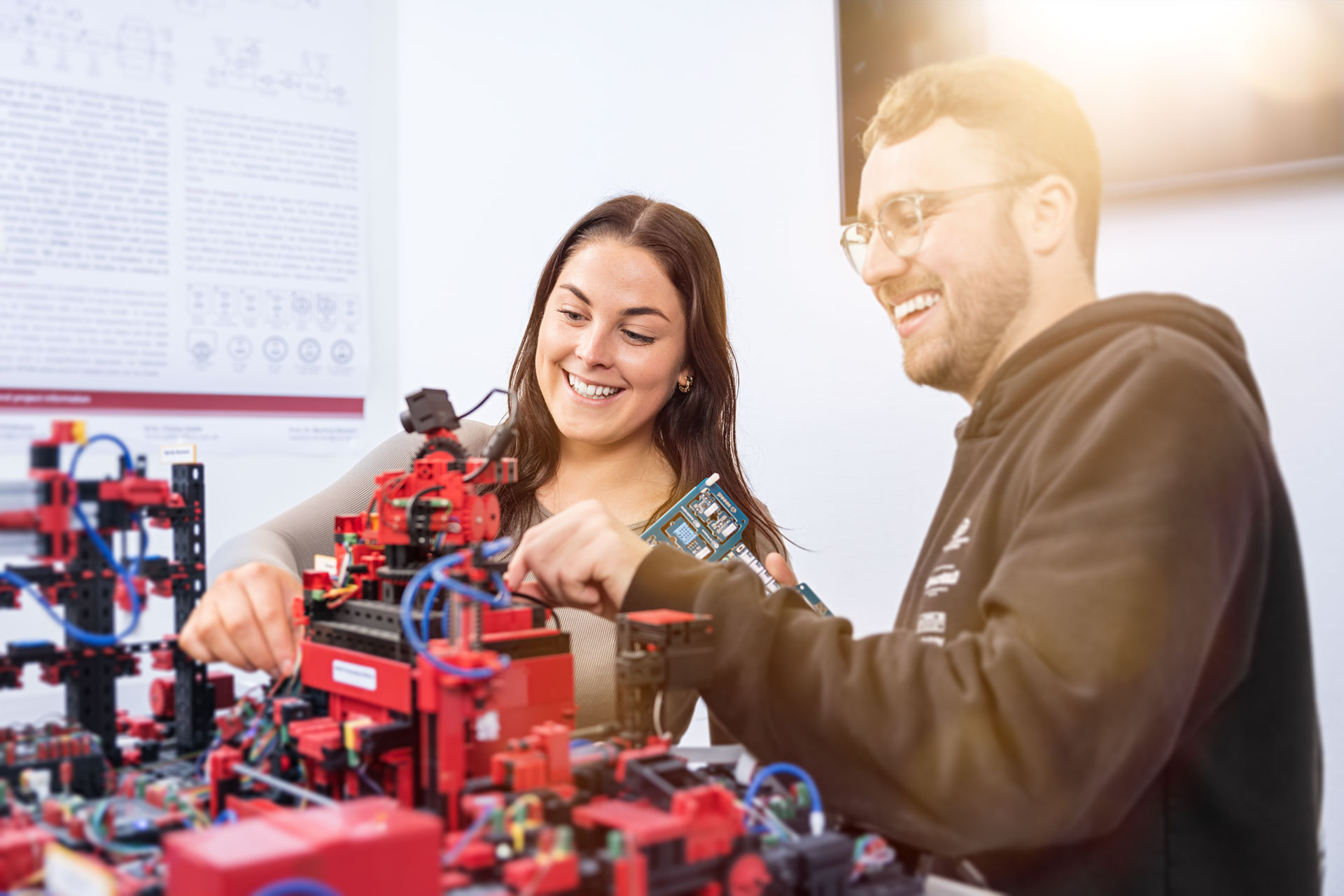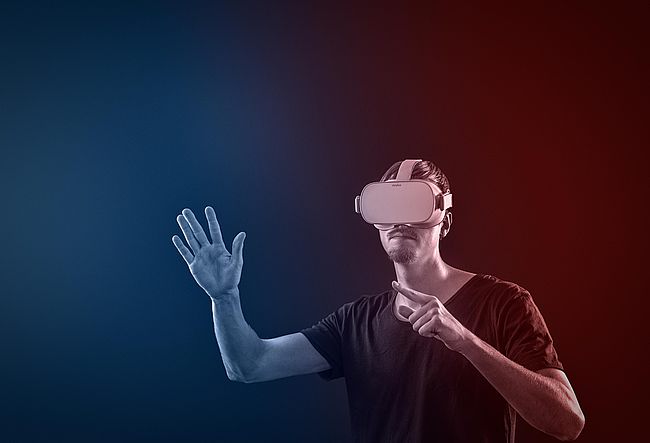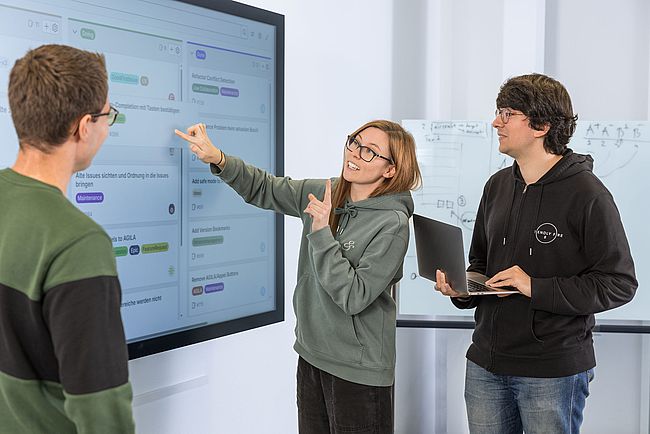
Bachelor of Science (BSc)
Computer Science
More about the course
The programme teaches modern methods for the structured analysis of application areas and for the conception, development and application of computing systems. Students are enabled to co-develop and realise IT-based cutting-edge technology right from the beginning of their career. Their foundational computer science knowledge also allows them to continuously further their education throughout their work life and easily keep up with the fast-paced technology development in computer science.
Academic Degree
Bachelor of Science (BSc)
Type of Study
- full-time
Study Curriculum
Start of Study
- each winter semester
Orientation Offer
Language of instruction
- German
Admission Requirements
- no restriction
Enrolment
ECTS Credits
180
Standard Period of Study
6


